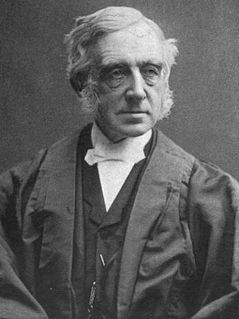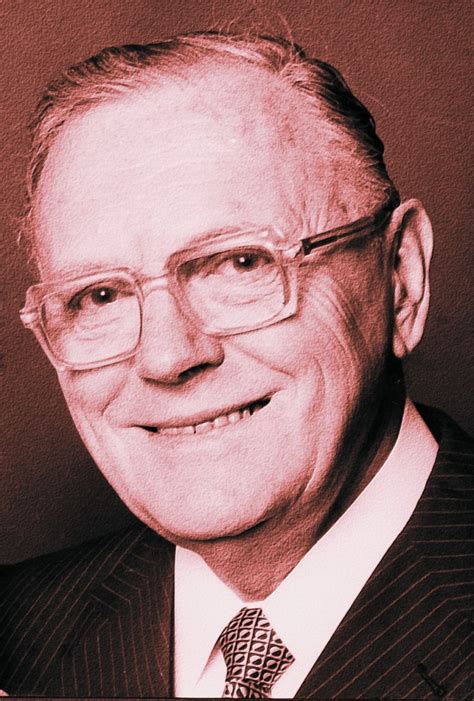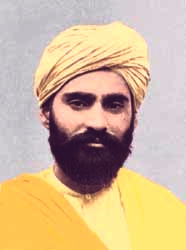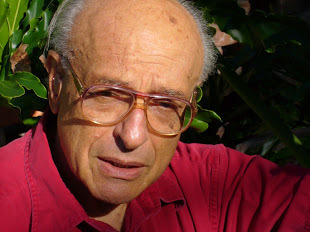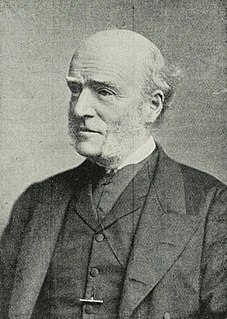A Quote by Abdelkader El Djezairi
But, in conformity to His wisdom it was right that afterwards the Prophet should be sent back from the vision of pure Unity and that he should return . . . toward the separative vision. For, He created man and jinn only that they should worship Him and know Him - and, if they remained at the degree of pure Unity, there would be none to worship Him. In this separative vision, the Worshipped and the worshipper, the Lord and the servant, the Creator and the creature are again perceived.
Related Quotes
I have heard of a monk who in his cell had a glorious vision of Jesus revealed to him. Just then a bell rang, which called him away to distribute loaves of bread among the poor beggars at the gate. He was sorely tried as to whether he should lose a scene so inspiring. He went to his act of mercy; and when he came back the vision remained more glorious than ever.
In the opening chapters of the Book of Revelation the Apostle John tells us how on the Isle of Patmos he was given an awesome vision of the Lord Jesus, risen from the dead. Then John says, 'When I saw Him, I fell at His feet as dead.' He tells us not only the vision itself, but the profound effect it had on him. It utterly prostrated him before the Lord until He came and laid His right hand on him and said 'Fear not.'
We do not worship the Prophet. We worship God our Eternal Father and the risen Lord Jesus Christ. But we acknowledge the Prophet; we proclaim him; we respect him; we reverence him as an instrument in the hands of the Almighty in restoring to the earth the ancient truths of the divine gospel, together with the priesthood through which the authority of God is exercised in the affairs of His Church and for the blessing of His people.
This is the gist of all worship: to be pure and to do good to others. He who sees Shiva in the poor, in the weak, and in the diseased, really worships Shiva. And if he sees Shiva only in the image, his worship is but preliminary. He who has served and helped one poor man seeing Shiva in him, without thinking of his caste or creed or race or anything, with him Shiva is more pleased than with the man who sees Him only in temples
Worship is a response to greatness. A man does not become a worshipper merely by saying, "Now I shall become a worshipper." That is impossible. That cannot be done. A man becomes a worshipper when he sees something great that calls forth his admiration or his worship. That is the only way worshippers are made. Worship answers to greatness.
Worship is what we were created for. This is the final end of all existence-the worship of God. God created the universe so that it would display the worth of His glory. And He created us so that we would see this glory and reflect it by knowing and loving it-with all our heart and soul and mind and strength. The church needs to build a common vision of what worship is and what she is gathering to do on Sunday morning and scattering to do on Monday morning.
Phrases like Worship Service or Service of Worship are tautologies. To worship God means to serve him. Basically there are two ways to do it. One way is to do things for Him that He needs to have done - run errands for Him, carry messages for Him, fight on His side, feed His lambs, and so on. The other way is to do things for Him that you need to do - sing songs for Him, tell Him what's on your mind and in your heart, in general rejoice in Him.
The big tradition, I think, is unity. And I have that in mind; and with that, you know, you could break all the traditions- all the other so-called rules, because they are stylistic.. and most are not true. As long as the marks are related to one another, there is unity. Unity in the work itself depends on unity of the artist's vision.
Quickly, the dragon came at him, encouraged As Beowulf fell back; its breath flared, And he suffered, wrapped around in swirling Flames -- a king, before, but now A beaten warrior. None of his comrades Came to him, helped him, his brave and noble Followers; they ran for their lives, fled Deep in a wood. And only one of them Remained, stood there, miserable, remembering, As a good man must, what kinship should mean.
The vision must be realistic - it has to be based on clear distinctive competencies. Again, what would the world lose if you didn't exist? A vision is very powerful because it gives you a basis to judge every action you take. Every action should be viewed through the prism of whether it furthers the vision.

